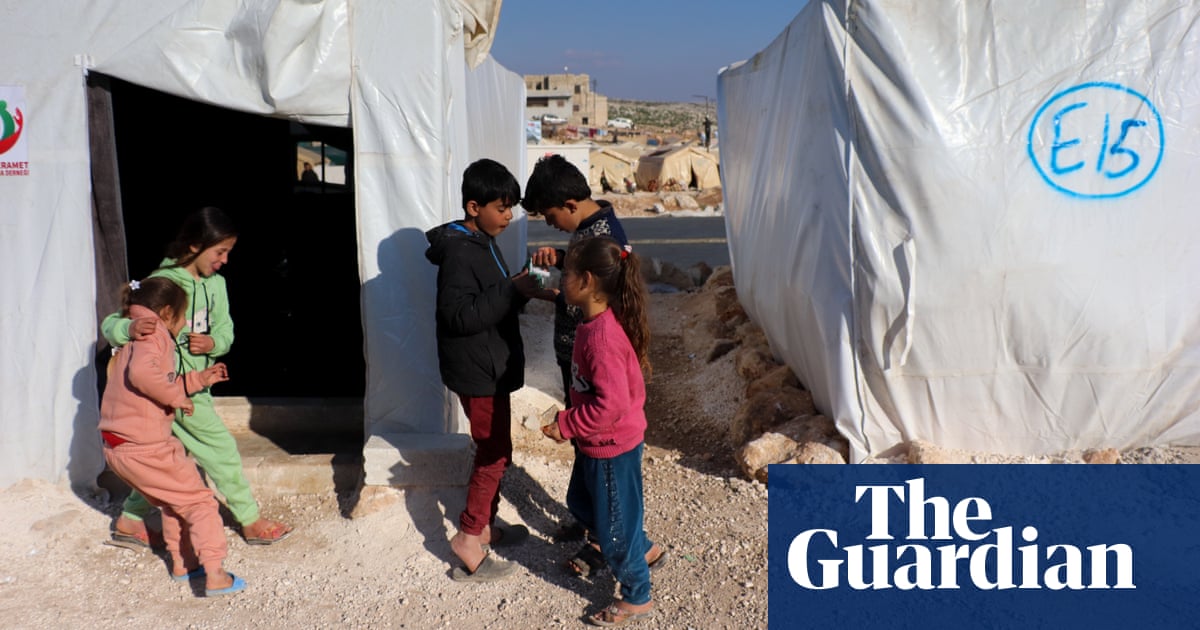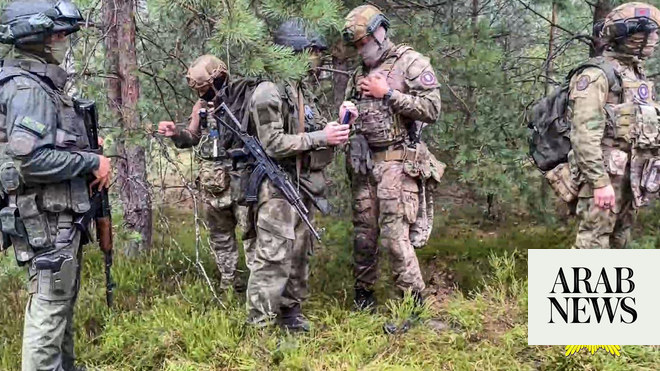
Belarus said the hastily constructed migrant camps on its border with Poland had been cleared of people on Thursday in a sign that Minsk is keen to defuse the deadly crisis that its leader, Alexander Lukashenko, helped to create.
On Thursday, that crisis claimed its 13th victim after an NGO reported that a one-year-old child had died after his family attempted the perilous journey through Belarus into the EU.
According to the Polish Centre for International Aid, the child’s family was from Syria and had been trapped outside in the forest for six weeks. The cause of death was not given, although the child’s family was said to have suffered stab wounds from an attack.
Belarusian state media, along with some international press, reported that the campsite near the Polish city of Kuźnica, where people attempting to cross the border were forced back with teargas and water cannon, had been cleared of people on Thursday morning. All that remained of the migrant camp, Belarusian state media wrote, were “huts, remnants of tents, abandoned clothes and dying fires”.
The Polish border guard service confirmed: “The campsite near the border crossing in Bruzgi was deserted. The Belarusian services sent the foreigners to the transport and logistics centre located several hundred meters away.” Belarus had already moved more than 1,000 migrants to the warehouse on Wednesday, where they were given food.
It is unclear where they will go from there.
On Thursday, a press spokesperson for Lukashenko also claimed that he and Merkel had discussed creating a humanitarian corridor to Germany for 2,000 of the migrants on the border, and that Belarus had agreed to help transport the remaining 5,000 back to their country of origin, mainly Syria or Iraq.
The spokesperson said that the first repatriation flight had departed Belarus on Thursday with 431 Iraqi immigrants on board. The remaining people “have categorically refused to leave but we will work on that,” they added. Reports said the flight had landed on Thursday evening.
Migrants from Syria, Iraq and other countries in the Middle East have reported spending more than £10,000 in travelling to Belarus and then contracting smugglers to help them across the border. Many have said they have no plans to go back.
“We are keeping our promises,” the spokesperson said. “Meanwhile, the EU has not fulfilled any of its own obligations.”
The suggestion of a secret deal between Lukashenko and Merkel on migration is politically explosive but the Belarusian leader has reason to exaggerate the results of his talks with Merkel.
Germany has not confirmed striking any deal for a humanitarian corridor with Lukashenko and media on Thursday cited government sources denying that a deal had been made. The EU has confirmed that only technical talks would be held with the Belarusian government in order to manage the return of migrants to their home countries.
Nonetheless, European politicians have expressed anger at Germany and Merkel for engaging directly with Lukashenko, who had not spoken with a single EU leader since he launched a brutal crackdown on the opposition last year.
The Lithuanian foreign minister, Gabrielius Landsbergis, criticised the appearance of a “separate negotiating track with the dictator, the illegitimate president”. The EU has not recognised Lukashenko as the legitimate leader of Belarus after claims of widespread abuse and voter fraud in 2020 presidential elections.
Landsbergis also said that at least one EU government had sought to remove Belavia, the Belarusian state airline, from a sanctions list agreed to by EU foreign ministers earlier this week. Politico has reported that Germany and Italy have held back on signing off on the full sanctions list because of a last-minute limits by the airline on flights with Iraqi, Syrian and Yemeni nationals from Istanbul. The publication also reported that a Syrian airline could be taken off the sanctions list.
Vladimir Putin, Lukashenko’s main backer, accused the west of using the migrant crisis “as a new reason for tension in a region close to us, for putting pressure on Minsk.” He also criticised Polish border guards for using water cannon and teargas on children.
The US Secretary of State Antony Blinken meanwhile warned that Belarus’s attempt to “weaponise migration” had to stop.
“We have in place authorities to, as necessary, add to sanctions,” Blinken told reporters on a visit to Nigeria.
“First and foremost, it is doing a terrible injustice to these people that it has victimised by making them pawns.”












